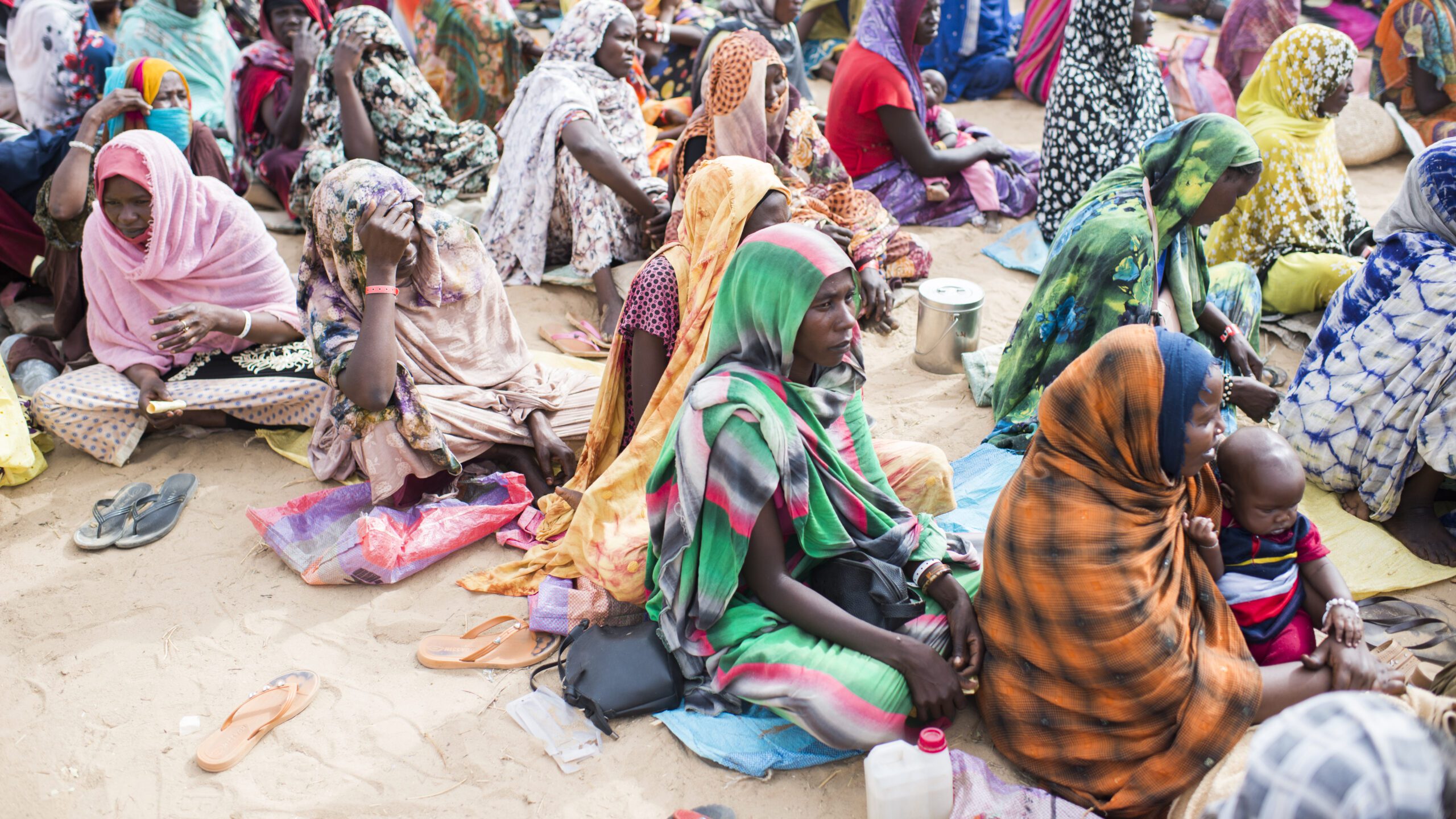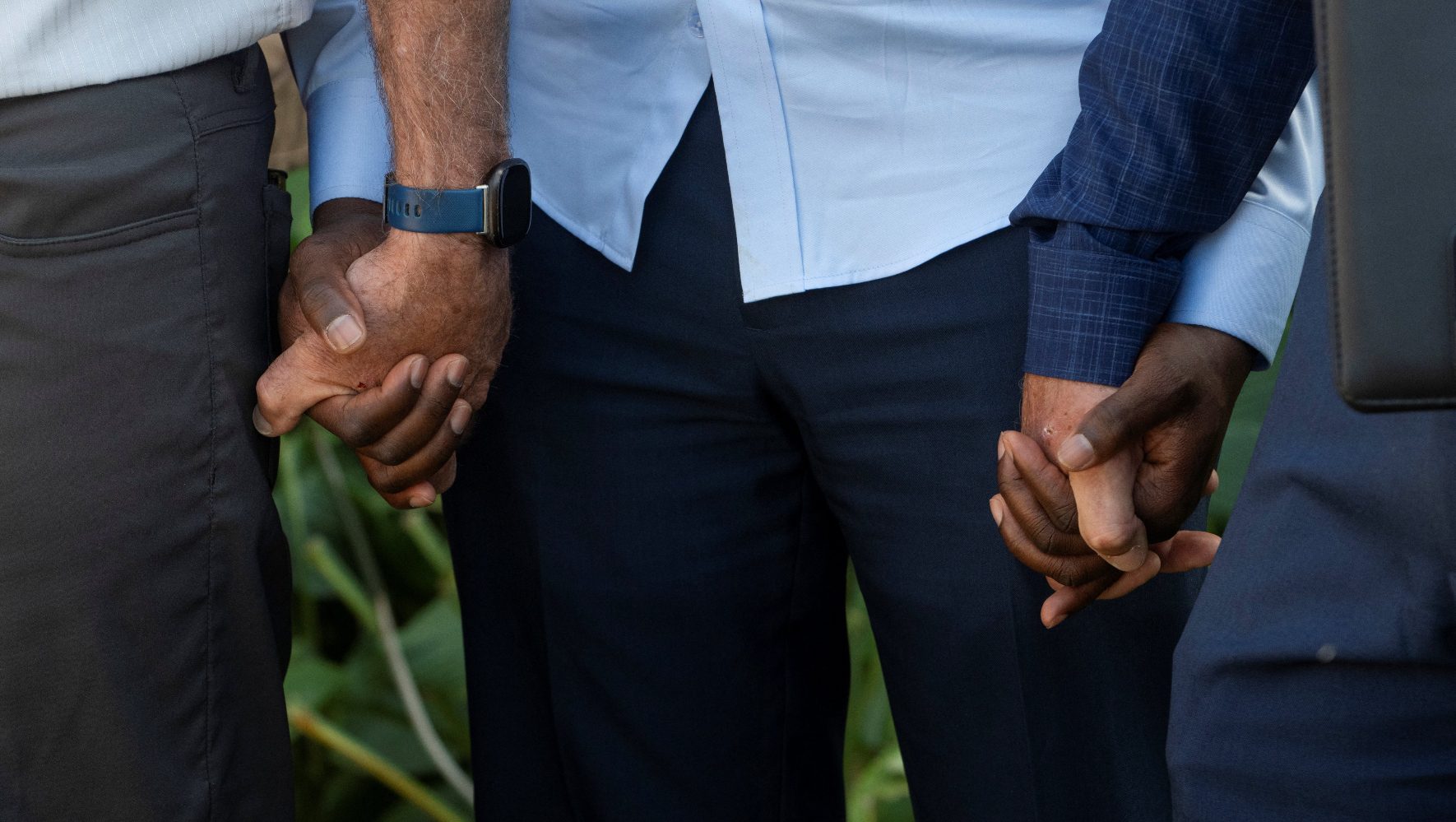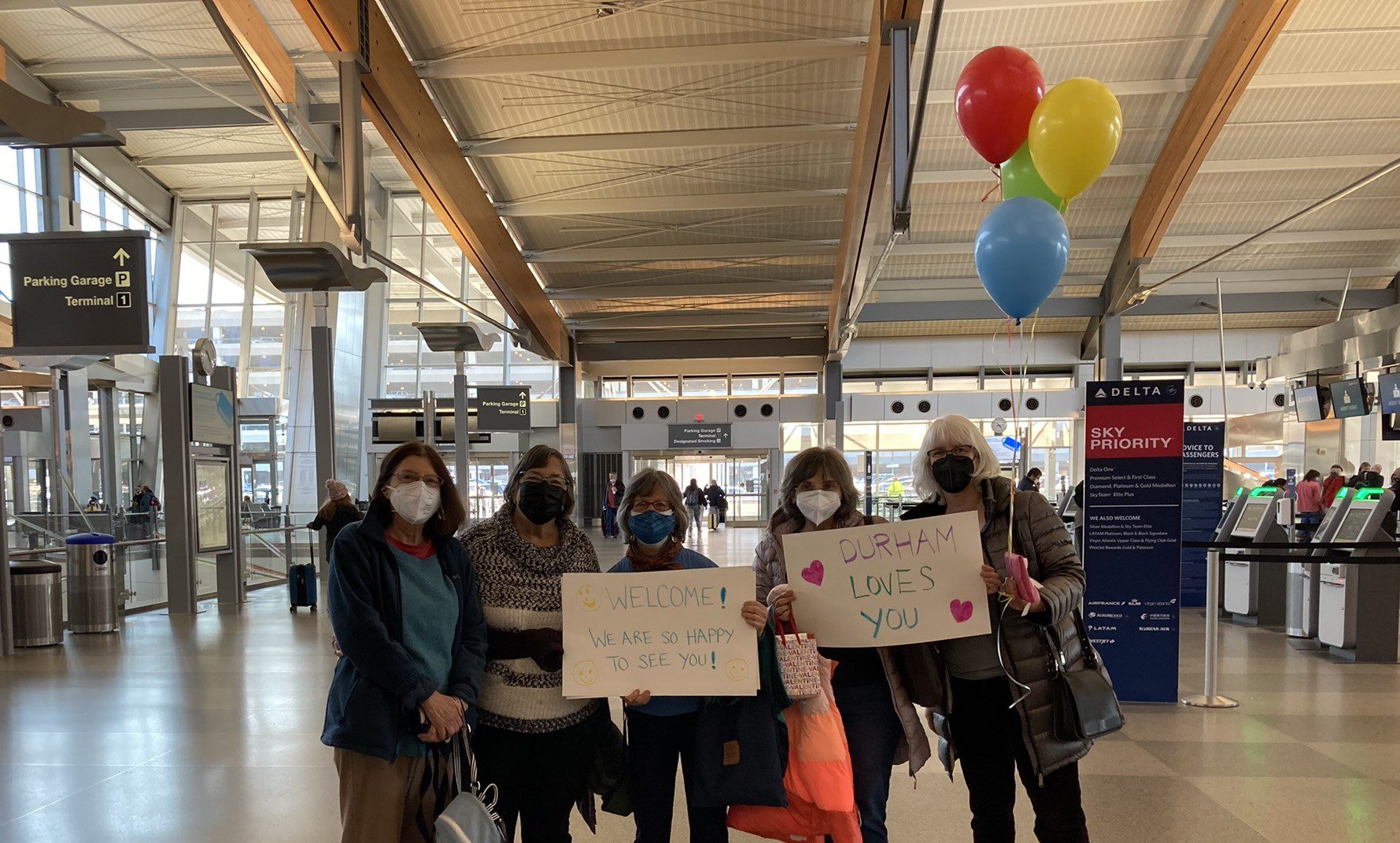The World’s Largest Displacement Crisis Needs More Attention
By Sharon Samber
HIAS.org
Jun 5, 2024

Newly arrived Sudanese refugees, who fled the nearby town of Tindelti a few hundred meters across the border, wait to be registered at the Kufrun site in the Ouaddaï region of Chad on May 8, 2023. (Colin Delfosse/UNCHR)
For a brief moment in the mid-2000s, Darfur, a region in western Sudan that few had ever heard of, became a prominent fixture in global headlines. A violent campaign orchestrated by the Sudanese government against ethnic minority groups in Darfur led to the death of an estimated 200,000 civilians and the displacement of two million more. The atrocities in Darfur sparked international outrage and prompted schools, synagogues, churches, mosques, and celebrities to organize and demand action.
In the two decades since, Darfur has largely fallen out of the global conversation. But the crisis never fully went away — especially not for the hundreds of thousands of displaced Darfuris who have never been able to return home. Last year, conflict in Sudan reignited: Fighting between rival military factions has led to at least 14,000 deaths since April 2023 and has displaced an estimated 8.8 million people, bringing the total number of displaced Sudanese to more than 10.7 million. This time, though, the global reaction has been muted.
Without significant assistance, the outlook for Sudan’s population is dire. A new report shows that about 2.5 million people — 15% of the population in Darfur and the neighboring Kordofan region — will die from hunger and disease by the end of September absent rapid improvements in food availability before summer rains impede transportation.
A plurality of refugees has fled to Chad, which was already hosting 400,000 displaced Sudanese as well as refugees from other countries and its own internally displaced citizens. The scale of the recent influx is shocking: Since April 2023, 745,086 individuals have come to Chad from Sudan, more than three quarters of whom are Sudanese, with arrivals through the Adré border crossing point averaging 1,000 persons per day. Chad has become the largest host country per capita in Africa, a burden that has stretched its already limited resources: over 30% of Chad’s population is living in extreme poverty, with 2.4 million currently food insecure.
“Now is the time to raise our voices to ensure that the people of Sudan are not forgotten.”
Noah Gottschalk, HIAS’ interim senior director for international advocacy
How HIAS Is Responding
HIAS is stepping up its advocacy for Sudanese refugees in Chad. Since establishing operations in the country two decades ago, we have continued to provide food, cash, gender-based violence mitigation and response services, mental health and psychosocial support, and child protection services to those coming into Chad who have endured arduous journeys that often involve forced recruitment, sexual assault, and other forms of violence as they flee Darfur.
The 13 refugee camps that HIAS works in along Chad’s eastern border with Sudan are under considerable strain. There is insufficient housing, poor sanitation, and rampant disease and malnutrition. Refugees are at high risk of gender-based violence and intercommunal violence, and while host communities have been welcoming, the difficulties of integrating so many new people are mounting by the day.
“Now is the time to raise our voices to ensure that the people of Sudan are not forgotten,” said Noah Gottschalk, HIAS’ interim senior director for international advocacy. “History has shown that when we come together to raise our voices on behalf of people in need, we can ensure that policymakers listen.”
A letter signed by 464 members of the HIAS Clergy Council sent to U.S. policymakers in Congress and the Biden administration emphasized the need to address the crisis in Sudan. “Only with more sustained political attention and diplomatic engagement will we begin to bring to light the scale of humanitarian need already in existence and prevent the spillover of conflict into Chad,” the letter said.
As famine approaches in Sudan, and hunger threatens hundreds of thousands across the border in Chad, HIAS is urging governments to immediately provide life-saving aid to the millions of civilians caught up in this crisis. The World Food Program has already warned that it will probably have to pause food assistance, the UN Refugee Agency cannot provide adequate shelter for new arrivals, and organizations on the ground like HIAS are working with extremely limited resources. People in the refugee camps are struggling with a lack of food, healthcare, and education.
The international community has taken steps to address the crisis. A donor conference co-hosted by France, Germany, and the European Union on April 15 of this year, the one-year anniversary of this conflict, brought funding pledges from more than 30 countries. Heads of UN agencies and international humanitarian NGOs have called on donors to urgently disburse pledges and fast-track additional funding for the humanitarian appeal. But a UN humanitarian coordination forum noted that in the six weeks following the conference, it had received just 16% of the $2.7 billion needed.
HIAS believes the same states that pledged funding can also act to defend humanitarian access in the region and promote peaceful solutions to the conflict. As the European elections approach, HIAS asks the EU address the root causes of displacement through foreign aid, diplomatic efforts, and rights-focused support to non-EU countries.
The pledges made in Paris show that the world’s leaders haven’t completely forgotten about Sudan. But time is of the essence.
“Now, those pledges must be converted into tangible humanitarian aid for desperate people fleeing hunger and violence before famine causes even more preventable loss of life,” said HIAS Europe Director Ilan Cohn. “Increased political commitment, media attention, and funding could make an enormous impact, just as they did 20 years ago.”





